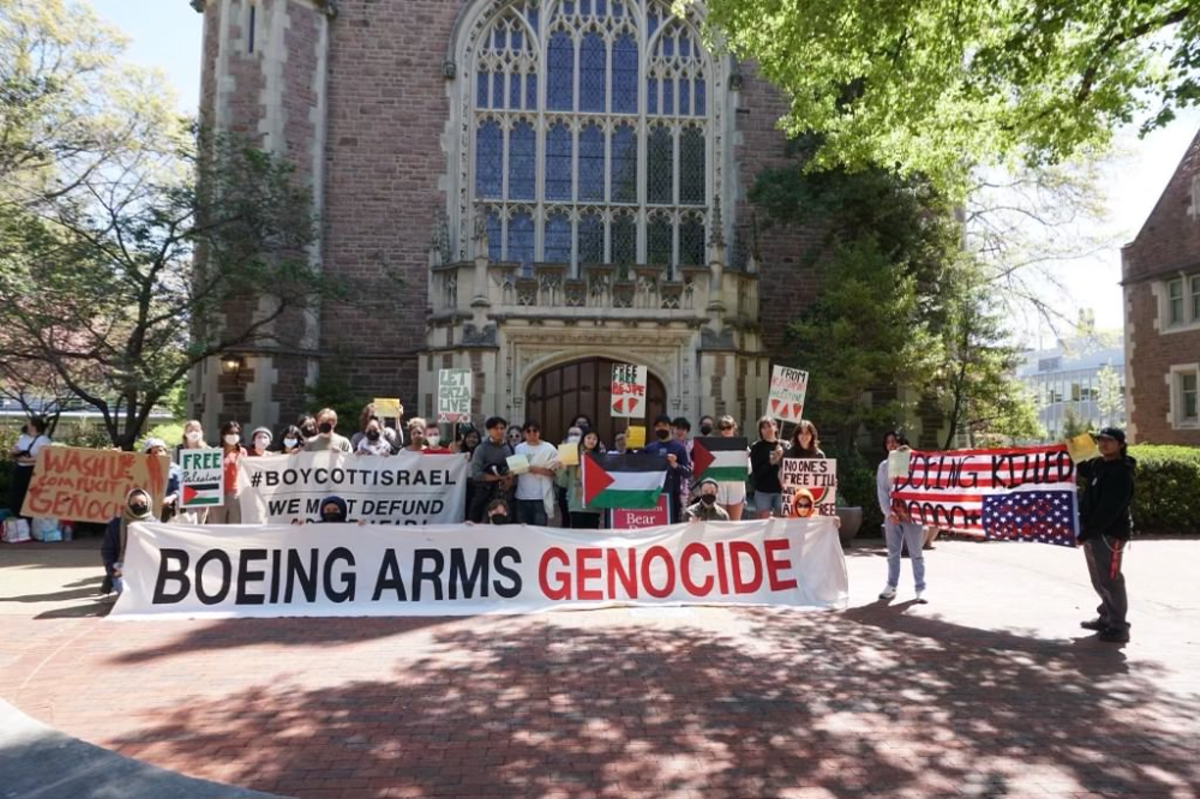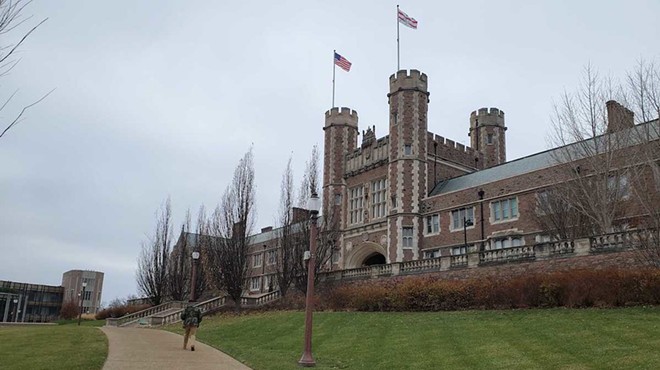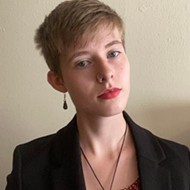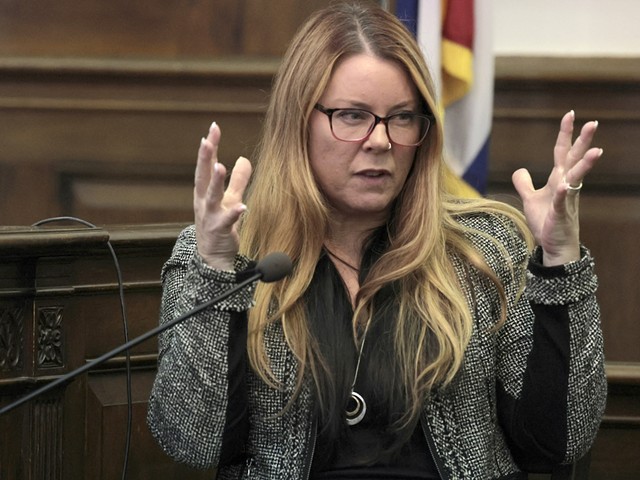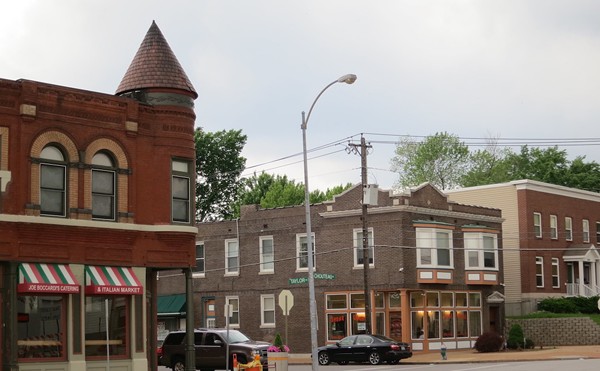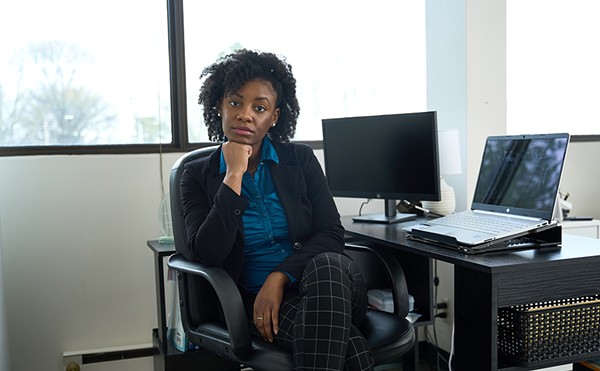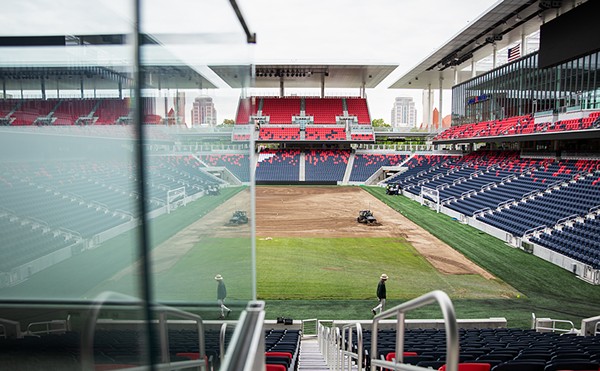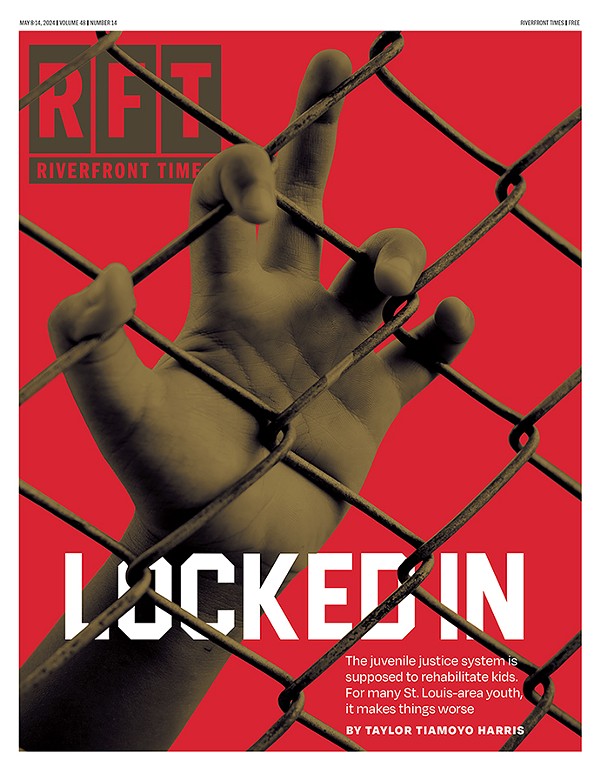On April 13, activists blended in with a crowd of nearly 500 parents and prospective Washington University students as they entered Graham Chapel for Admitted Students Day. Partway through the event, they made their move.
Three students unfurled a banner, while 17 others marched to the stage while chanting for a free Palestine. Less than 30 minutes later armed police stormed in with zip ties.
Activists were given three warnings to disperse. Then the arrests began. Twelve people were arrested. Three students were suspended.
Nearly two weeks later, two Wash U students sit around a kitchen table in University City to talk about genocide.
The table is covered in political science and abolitionist texts and both students’ phones alert them consistently throughout the conversation. They have already spent a busy morning fielding texts from other organizers working to pressure the school to divest from Boeing and the work to organize future protests is in constant motion.
It is evident during the conversation that the protests are highly organized — with designated de-escalators, designated observers and photographers, and a clear distinction between who could risk arrest and who must be protected at all costs.
Daniel Cazares, a senior studying business and computer science, is one of three students who was suspended, and one of 12 activists slapped with court summons, for protesting inside the chapel.
He and Sonal Churiwal, a sophomore studying women, gender, and sexuality studies and political science, are both involved with Resist Wash U, an activist organization calling on the university to divest from Boeing amid Israel’s brutal attacks on Palestine.
Cazares tells RFT activists disrupted the event for admitted students because it is one of the final times the school has the opportunity to sell itself to potential students. Demonstrators wanted to make it clear to the prospective students and their parents that the school has close ties with Boeing.
While some parents and prospective students attending the event were adamantly opposed to the protest, others — particularly families of color — were sympathetic or spoke with protesters to learn more. “A few families actually stay behind in the chapel for at least 30-40 minutes with us, either throwing peace signs or chanting with us,” Cazares says.
This helped give protesters courage because as the chanting continued, armed police entered the chapel, he says.
Rather than being taken to jail, the arrested protesters were issued court summons. Cazares believes that’s because the administration didn’t want photos of students being escorted in public view in handcuffs. (It’s also worth noting that what they were cited with — disturbing the peace and trespassing, municipal ordinance violations for unincorporated St. Louis County — are often handled without people being booked into jail.)
Churiwal remained outside with other students, alumni and activists to hold the line until all arrested protesters were released. They remained there for about two and a half hours, she says.
The arrested activists must now appear in St. Louis County’s municipal court in Hazelwood on June 4.
Cazares also received an email later that day saying he was suspended and banned from campus until the disciplinary process plays out. He wasn’t surprised. In November he’d received a warning, one complete with vague surveillance footage that administrators claim showed him hanging up Pro-Palestine posters on campus. Luckily Cazares was taking the semester off from classes and the suspension won’t impact his graduation date, he says.
One week later, on April 20, Churiwal says she was part of a group that organized a rally on campus. This time, it was the university’s alumni weekend.
Alumni, including a graduate student at Columbia who had been arrested at an encampment there, helped set up a Pro-Palestine encampment on the campus.
“We were making banners and we had food, and within minutes, the Washington University Police Department came over and they had a megaphone and they declared the encampment unlawful, gave us five minutes to leave, and said if we don't leave, we're gonna be arrested for trespassing,” Churiwal says.
Multiple departments responded — including the Wash U campus police, the St. Louis Metropolitan Police Department, Richmond Heights Police and Clayton Police — surrounding the encampment with over half a dozen squad cars. At this point the police outnumbered students and alumni.
“To our knowledge we were not breaking any university policy,” Churiwal says.
After some back and forth with protesters, activists were told they were violating the campus’ space utilization policy. Churiwal says they asked what part of the policy was being violated but received no response.
“We were forced to leave and students were walked off campus if we didn’t leave,” she says. “It was clearly an intimidation tactic. [...] The university is definitely on edge and definitely wants to shut things down before it has a chance to escalate.”
Wash U students are among the ranks of university students across the U.S. protesting the ongoing onslaught of Gaza and calling on their respective administrations to divest from companies like Boeing.
Wash U’s involvement with Boeing includes an accelerated leadership program, funding for scholarships and tuition discounts for Boeing employees. Boeing is one of the largest employers of Wash U graduates, she says.
In addition to taking direct action, Churiwal worked with Wash U’s student union to formally demand the university divest from Boeing and end those programs.
“Admin hasn't even felt it necessary to communicate with us on it,” she says. “So if the institution is frustrated by direct action responses, we have also gone through the proper channels for advocacy, and receive absolutely no response.”
Faculty and staff have also expressed disappointment in the university’s attempts to suppress student protests and published a letter on Friday demanding the administration stop calling in armed police and reverse the student suspensions.
RFT asked Wash U by email whether police would be called to future protests, what the university’s response was to claims that these demonstrations have been treated differently than others in the past, and what comment the university had in response to calls to divest from Boeing.
Assistant Vice Chancellor for News & Media Relations Susan Killenberg McGinn emailed the following response: “We fully support free expression and will allow demonstrations that follow our policies. Our policy on Demonstrations and Disruptions is available here. Our policies apply to all demonstrations, regardless of the topic.”
While free speech issues on campus are receiving wide-spread media attention right now as police continue to arrest peaceful protestors from Columbia to the University of Texas, activists hope to keep the conversation centered around Palestine.
“St. Charles’ Boeing factory is the final stop where these planes, bombs, missiles go before getting shipped off to Israel,” Cazares says. “Not even the university but just by being in the city we are so tied to Boeing, and therefore also tied to the genocide that's going on. So tied to these 40,000+ lives that have just been decimated and erased. It's heartbreaking every day to be made complicit to that.”
Churiwal says one of the arguments student organizers have heard from the administration is that they shouldn’t be so concerned about Palestine because it is thousands of miles away.
“You all have PhDs, do you not see that the genocide is manifesting abroad but you are manufacturing it here?” she asks. “The genocide is happening in our backyard.”
Cazares adds that the protests have revealed the true attitudes of Wash U administrators.
“The real Wash U is a university that will not hesitate to send armed officers to physically police students, to put their hands on Black and brown student bodies,” he says.
Follow us: Apple News | Google News | NewsBreak | Reddit | Instagram | Facebook | Twitter | Or sign up for our RSS Feed

